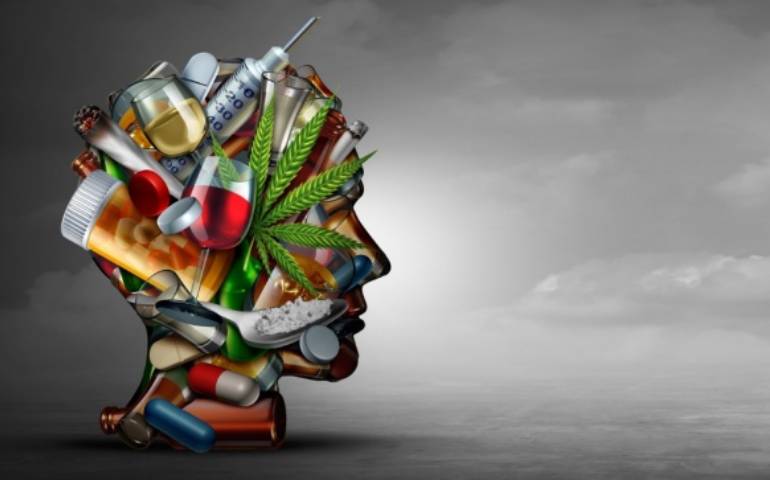Dive into the 'Psychology of Addictions,' grasping the psychological processes behind addictive behaviours. Uncover environmental, genetic factors and mechanisms driving compulsions. Focus first on 'Alcohol-related Addictions,' untangling dependency complexities, cognitive effects, and mental health links. Engage with case studies for deeper insights. Then, uncover 'Drug-Related Addictions,' dissecting substance ties and psychological tolls. Study neurobiological pathways driving cravings.
Overview
Delve into the intricate realm of addictive behaviours with our course, "Alcohol and Drug Addictions – Psychology." This comprehensive programme offers an insightful introduction to the captivating field of addiction psychology, exploring the profound impact of alcohol and drug-related dependencies on individuals and society. Embark on a journey through the fundamental concepts in the 'Psychology of Addictions,' where you'll gain a deep understanding of the psychological processes that underlie addictive behaviours. Explore the intricate web of causative factors, from environmental influences to genetic predispositions, and uncover the mechanisms that perpetuate these compulsions. In the first segment, we shine a spotlight on 'Alcohol-related Addictions,' delving into the complexities of alcohol dependency, its effects on cognitive function, and its interplay with mental health. Engage with enlightening case studies and research findings that shed light on the multifaceted nature of alcohol addiction. The subsequent segment unveils 'Drug-Related Addictions,' where you'll unravel the intricate ties between various substances and addictive behaviours. Examine the neurobiological pathways that drive drug cravings and the psychological toll of substance abuse. Complementing the core material, a range of Supplementary PDFs will be provided, offering you access to additional resources, research papers, and expert insights to enhance your learning experience. By the end of this course, you'll possess a holistic comprehension of the psychological intricacies surrounding alcohol and drug addictions, equipping you with valuable knowledge to address and mitigate these critical issues. Join us on this educational journey and become well-versed in the psychology behind addiction.What Will You Learn?
- Fundamentals of addiction psychology and its significance.
- Psychological processes underlying addictive behaviors.
- Factors contributing to alcohol-related dependencies.
- Complexities of drug-related addictive tendencies.
- Impact of addiction on mental health and cognition.
- Neurobiological pathways driving cravings and relapses.
- Strategies for effective addiction treatment and support.
- Case studies highlighting real-life addiction scenarios. How genetics and environment influence addictive tendencies.
- Practical insights for personal and professional contexts.
Who Should Take The Course?
- Psychology enthusiasts interested in addiction psychology and behavior.
- Mental health professionals for improved addiction treatment.
- Healthcare providers aiming to understand psychological aspects of dependencies.
- Social workers engaged in addiction-related community support.
- Students and researchers exploring psychology and neuroscience.
- Legal professionals dealing with addiction cases seeking insights.
- Individuals affected by addictions seeking understanding and coping strategies.
- Anyone curious about the genetics and psychology of addictive behaviors.
Requirements
- No prior psychology knowledge required; suitable for beginners.
- Basic familiarity with general psychological concepts beneficial.
- Access to a computer or device with internet connectivity.
- Willingness to engage with course materials and resources.
- Openness to discuss sensitive topics related to addiction.
- Active participation in discussions and assignments (if applicable).
Course Curriculum
-
- About your Tutor 00:01:00
- About the Course 00:03:00
-
- What is ‘Addiction’? 00:06:00
- The Nature of ‘Addictions’ 00:11:00
- Do ‘Genetics’ Play Role in ‘Addictive Behaviour’? 00:08:00
- Environmental Factors that Contribute to ‘Addictions’ 00:08:00
- Symptomatology of Alcohol Addiction (and ‘Withdrawal’) 00:09:00
- Diagnosis of Alcohol Use Disorder (AUD) 00:08:00
- Psychological Effects of Alcohol Addiction 00:08:00
- Physiological Effects of Alcohol Addiction 00:07:00
- Mental Health & Alcohol Addiction 00:11:00
- Available treatments (Pharmacolology) 00:09:00
- Psychological Treatments (therapy, counselling, CBT, REBT) 00:08:00
- Steps to Recovery 00:09:00
- Alcohol & Drug Addictions – Psychology – Resources Unlimited
New Courses
Blogs
Jul'23
ADHD Training for Teachers: Empowering Educators to Support Students with Attention Challenges
Relationships may be severely harmed by narcissistic behaviours, leaving emotional scars and...
Jul'23
Narcissistic Behaviour and Relationships: Understanding the Impact and Finding Healing
Relationships may be severely harmed by narcissistic behaviours, leaving emotional...
Jul'23
Childhood Trauma in Adults
What Is Childhood Trauma? Childhood trauma refers to distressing or...
Jul'23
Creating A Social Media Strategy
Set Clear Objectives:The first step in developing a successful social media...
Jul'23
Neuro-Linguistic Programming Techniques
Neuro-Linguistic Programming (NLP) is a fascinating and widely acclaimed approach...
Jul'23
Acceptance and Commitment Therapy in the UK
What is acceptance and commitment therapy? Acceptance and Commitment Therapy...





